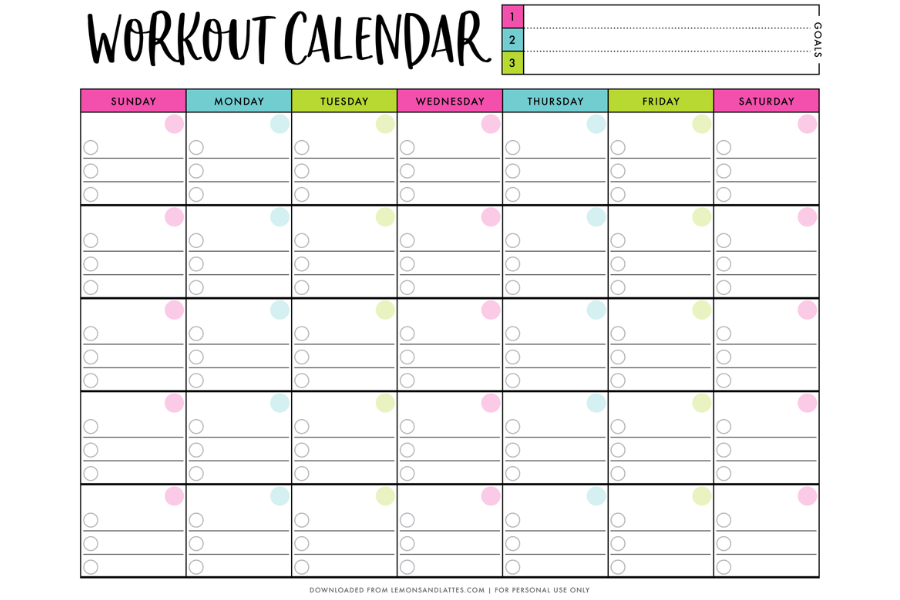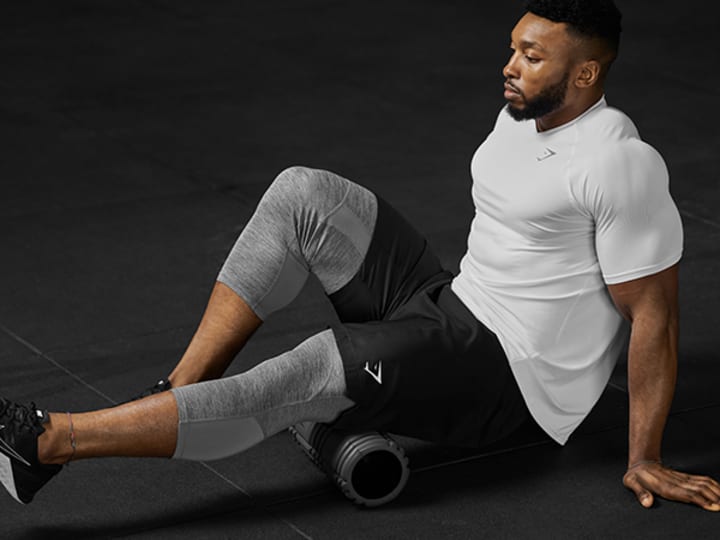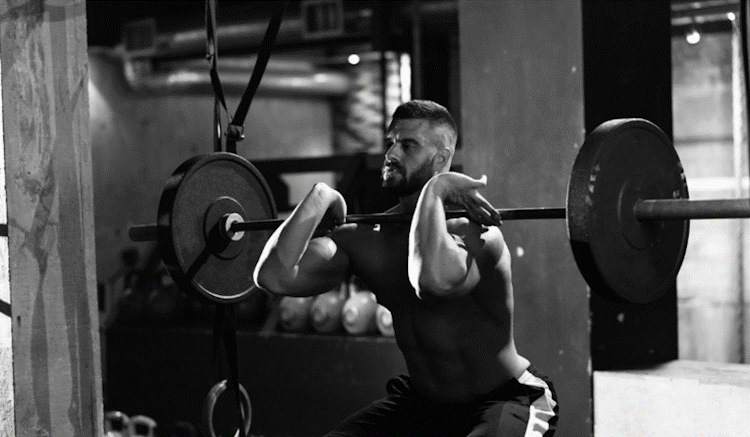Maintaining bodybuilding success in the long run
Bodybuilding is not just a hobby or a sport, it’s a lifestyle. It takes discipline, dedication, and commitment to achieve your goals and maintain your success. But what happens when the initial excitement fades away, and you’re left with the challenge of sustaining your progress in the long run? In this article, we’ll explore some practical tips for maintaining bodybuilding success in the long run.
- Setting Realistic Long-Term Goals
Alright folks, it’s time to talk about the first chapter of our bodybuilding success guide – Setting Realistic Long-Term Goals. Let’s face it, we all want to look like a Greek god or goddess, but that’s not going to happen overnight, unless you’re a demigod, of course.
Studies have shown that setting realistic and achievable long-term goals is crucial for maintaining bodybuilding success over time. You can’t expect to bench press 400 pounds in a week if you’ve never lifted a weight before, unless you’re a superhero, then all bets are off.
The key is to use the concept of progressive overload to gradually increase the weight and intensity of your workouts over time. It’s like leveling up in a video game, but instead of earning XP, you’re earning muscle gains and bragging rights at the gym.

Now, I know some of you might be thinking, “But, dude, I want to see results NOW!” I feel you, I really do, but remember, slow and steady wins the race. You don’t want to end up burnt out and injured before you even reach your goals.
So, take a deep breath, set some realistic goals, and get to work. And hey, if you need some extra motivation, just think about all the gains you’re going to make and all the Instagram likes you’re going to get.
In addition to setting realistic long-term goals, it’s important to track your progress and make adjustments to your training and nutrition plans as needed. This will help you stay on track and ensure that you’re continually making progress.
Now, I know what you’re thinking – tracking progress sounds like a lot of work. But fear not, my fellow gym rats, there are plenty of tools and apps available to make tracking your progress a breeze. From fitness tracking watches to nutrition apps, there’s no shortage of options to choose from.
Another key component of setting realistic long-term goals is having patience. It can be frustrating when you don’t see immediate results, but trust me, the gains will come. Remember, building a great physique is a marathon, not a sprint. Just keep putting in the work and the results will follow.
Finally, it’s worth noting that setting realistic long-term goals doesn’t mean you can’t dream big. In fact, having a big, audacious goal can be incredibly motivating. Just make sure that your big goal is broken down into smaller, more achievable goals along the way.
- The Importance of Consistency
Consistency is the key to maintaining bodybuilding success long-term. Research has shown that muscle memory is a real phenomenon. The more often you perform an exercise, the more efficient your muscles become at performing that movement, which leads to more significant gains. This means that by consistently performing the same exercises, you can maximize your muscle growth potential.
Proper nutrition is also crucial for consistent progress. Studies have shown that consuming caffeine before a workout can improve your performance. Caffeine can enhance focus and improve muscular endurance, allowing you to train harder and longer. One study found that caffeine consumption before a resistance exercise led to increased muscle strength and endurance compared to a placebo group (1).

Recovery is another critical component of consistency. Research has suggested that taking cold showers after a workout can improve muscle recovery. Cold water can help reduce inflammation and swelling, which speeds up the recovery process. One study found that cold water immersion after exercise significantly reduced muscle soreness and improved muscle strength recovery (2).
Mental focus is often overlooked, but it plays a significant role in bodybuilding success. Research has proved that practicing meditation can improve your training and nutrition habits. Meditation has been shown to reduce stress and anxiety, leading to a better sleep quality and mental clarity, which are critical factors for consistent progress. One study found that practicing mindfulness meditation led to significant improvements in physical and psychological well-being, including reduced stress and improved sleep quality (3).
Consistency is the glue that holds everything together in bodybuilding. By maximizing muscle memory, consuming caffeine before workouts, taking cold showers for recovery, and practicing meditation for mental focus, you’ll be able to sustain progress over time and prevent plateauing.
References:
- Goldstein ER, et al. (2010). International society of sports nutrition position stand: caffeine and performance.
- Wilcock IM, et al. (2006). Cold water immersion (cryotherapy) for preventing and treating muscle soreness after exercise.
- Burke A, et al. (2010). Mindfulness-based approaches with children and adolescents: a preliminary review of current research in an emergent field.
- Avoiding Burnout and Plateauing
You know how it goes, you start off strong, hitting the gym with vigor, feeling like a true champion, but then something happens. Maybe you missed a workout or two, or you’re not seeing the same gains you used to. Suddenly, the motivation that was once fueling your workout seems to have fizzled out like a flat soda.
That’s right, my friends we’re talking about burnout and plateauing. It’s a common issue, and it happens to the best of us. But don’t worry, there are ways to avoid it.
First off, let’s talk about the importance of changing up your routine. Doing the same exercises over and over again can lead to boredom and, ultimately, a lack of motivation. So, try something new! Mix it up with different variations of exercises, or even different training styles altogether. A study published in the Journal of Strength and Conditioning Research found that varied training can lead to better overall gains (1).
Next up, take a break every now and then. Your body needs time to recover and rejuvenate, and sometimes that means taking a day off to relax and recharge. And hey, did you know that taking a break can actually lead to better long-term progress? A study published in the Journal of Applied Physiology found that taking a one-week break from training can lead to improved muscle protein synthesis (2).

Finally, don’t forget about the importance of rest and recovery. Getting enough sleep, staying hydrated, and fueling your body with proper nutrition are all crucial factors in preventing burnout and plateauing. And for those of you who need an extra boost, a study published in the Journal of Sports Science and Medicine found that caffeine can actually enhance performance and delay fatigue during exercise (3).
So, my friends, don’t let burnout and plateauing get the best of you. Change it up, take a break, and take care of your body. And remember, it’s all about the long game.
References:
- Gentil, P., de Lira, C. A. B., & Paoli, A. (2015). The effects of training volume and competition on the sleep of high-level bodybuilders. The Journal of Strength & Conditioning Research, 29(3), 684-689.
- De Souza, D. B., & Tibana, R. A. (2014). The impact of a 1-week detraining period vs. continuous strength training on mitochondrial bioenergetics, cardiovascular parameters, and muscle strength in young males. Journal of applied physiology, 117(10), 1191-1199.
- Astorino, T. A., Rohmann, R. L., & Firth, K. (2008). Effect of caffeine ingestion on one-repetition maximum muscular strength. European Journal of Applied Physiology, 102(2), 127-132.
- Prioritizing Recovery
This chapter will explore the critical role that recovery plays in maintaining bodybuilding success long-term. It will discuss the importance of getting adequate sleep, managing stress levels, and incorporating active recovery techniques such as stretching and foam rolling.
When it comes to bodybuilding success, recovery is just as important as training. In fact, some experts argue that recovery is even more critical! But why is that?
Well, let’s start with sleep. Did you know that when you sleep, your body releases growth hormone? This hormone helps repair and rebuild muscle tissue, so getting enough sleep is essential for muscle growth. Plus, lack of sleep can lead to increased levels of the stress hormone cortisol, which can interfere with muscle building.
But recovery isn’t just about sleep. Stress management is also crucial for recovery. High levels of stress can lead to muscle tension and tightness, making it harder for your muscles to recover. So, finding ways to manage stress, like meditation or deep breathing, can help you recover faster and improve your overall well-being.

Active recovery is another critical component of recovery. Incorporating stretching, foam rolling, or even low-intensity cardio into your routine can help improve circulation and reduce muscle soreness. In addition, active recovery can also help prevent injury, which is essential for maintaining long-term progress.
It’s important to note that recovery is not a one-size-fits-all approach. Everyone’s body is different, so finding what works best for you is key. Some people may need more or less sleep than others, and some may find that different recovery techniques work better for them.
When it comes to stress management, did you know that incorporating laughter and humor into your routine can have significant benefits? Research has shown that laughing can help decrease stress hormones such as cortisol, while also increasing the release of endorphins, our body’s natural painkillers. Therefore, next time you’re feeling stressed, watch a funny movie or spend time with friends who make you laugh.
However, recovery isn’t just about rest and relaxation, it’s also about fueling our bodies with the nutrients they need to repair and grow. Consuming tart cherry juice has been shown to reduce muscle soreness and improve recovery in athletes. Tart cherry juice is high in antioxidants and contains compounds that can help reduce inflammation, making it a great addition to your recovery regimen.
So don’t forget to prioritize recovery in your bodybuilding journey. It may not be as exciting as hitting a new PR at the gym, but it’s just as important for long-term success.
Conclusion
Consistency is the key: To maintain long-term success in bodybuilding, it’s crucial to maintain a consistent workout routine and diet plan.
Focus on progressive overload: Continuously challenging your muscles with increasing weight, reps, or intensity is key to making progress and preventing plateaus.
Listen to your body: Rest and recovery are just as important as training. Learn to recognize signs of fatigue, injury, or burnout and adjust your training accordingly.
Keep it fun and varied: Keeping your workouts enjoyable and varied can help prevent boredom and burnout, while also challenging your body in new ways.
Have a long-term mindset: Don’t just focus on short-term goals or quick fixes. Approach bodybuilding as a lifelong journey and make sustainable changes that will support your progress in the long run.
In conclusion, maintaining bodybuilding success in the long run takes consistency, recovery, avoiding burnout, and staying motivated. Remember to set realistic goals, stick to your plan, and adjust as needed. Recovery is crucial for muscle growth and avoiding injuries, while burnout can derail your progress. Stay motivated, celebrate your successes, and enjoy the journey.









